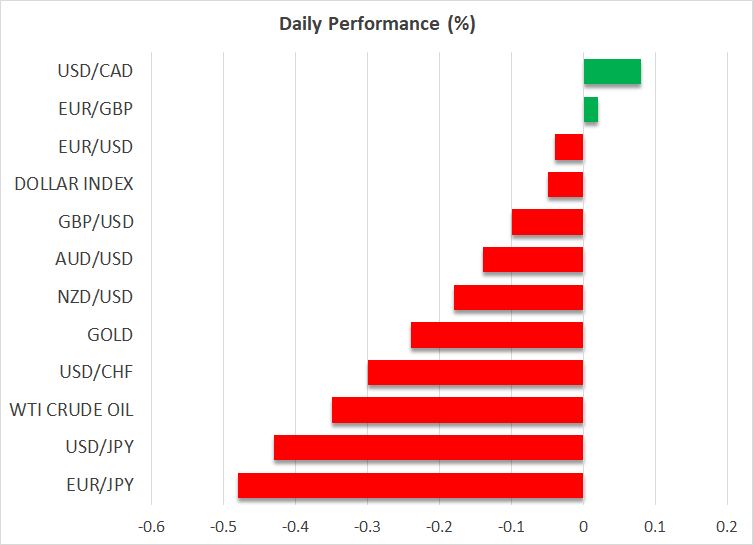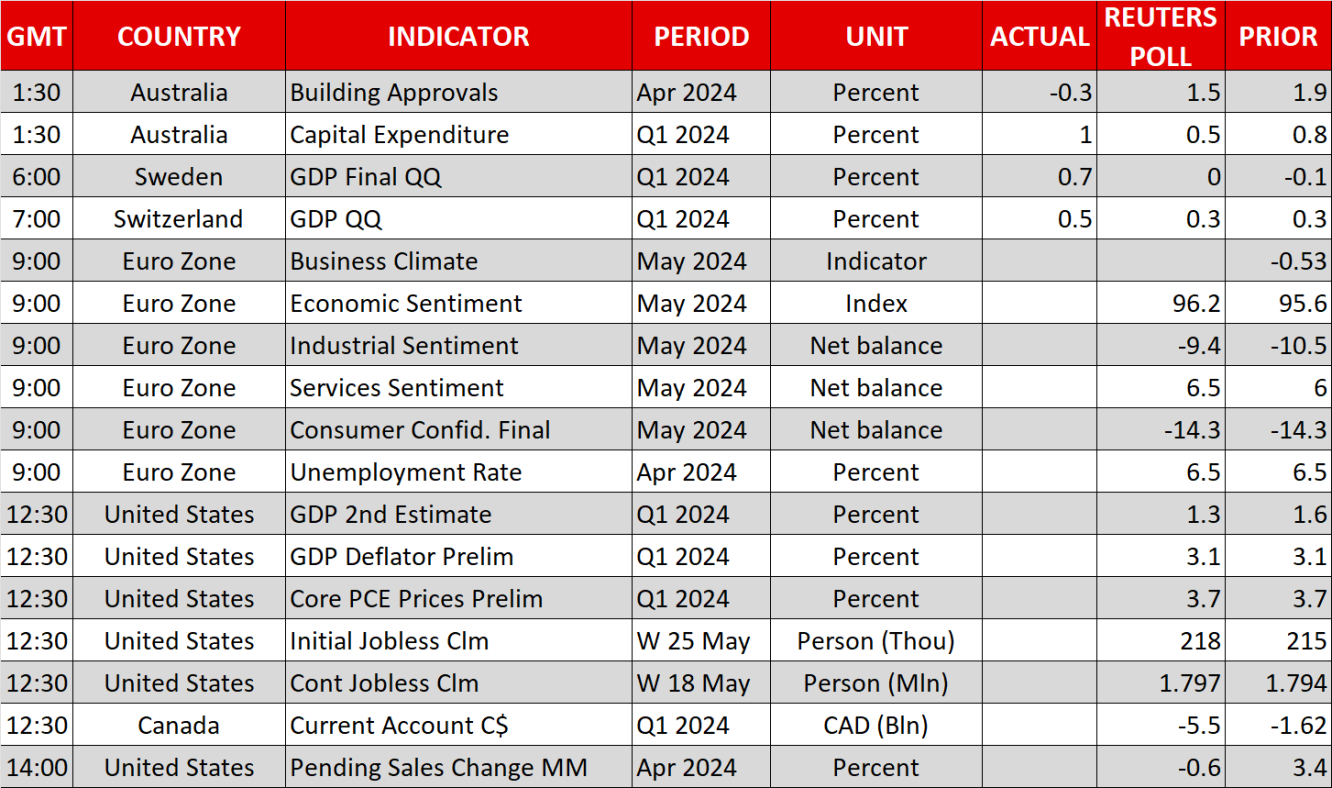- Higher Treasury yields contribute to stock indices’ retreat
- Euro under pressure as the pound benefits from the election
- Gold fails to benefit from risk-off; oil drops ahead of OPEC meeting

Dollar is on the front foot
The US dollar is gaining against its main counterparts with the euro/dollar pair dropping to a 2-week low. The catalyst for this move appears to be the bond market as the 10-year US Treasury yield is hovering above 4.6% for the first time since early May. This yield move was triggered by a series of weak bond auctions, but the main reason appears to be the Fed’s inability and unwillingness to turn dovish at this current juncture, as made evident by the recent Fedspeak.
Yesterday’s Beige Book pointed to a US economy losing some steam, matching the recent data releases. However, it is still performing exceptionally well compared to the euro area and considering the higher level of interest rates. The powerful NY Fed President Williams and hawkish Dallas Fed President Logan will be on the wires today and they are unlikely to strike a dovish tone, especially ahead of tomorrow’s key PCE release.
Both stock indices and gold are trading lower
In the meantime, equity indices remain under pressure, led by the main European indices. Profit taking after the strong earnings round and the “higher for longer” stance by the Fed could be some of the reasons for this underperformance, especially as the market is realizing that, unless the data takes a turn for the worse, the Fed could be forced to stay on the sidelines until December.
Despite this market angst, the outperformance of the dollar has pushed gold lower. It remains to be seen if this move picks up speed but at the moment, gold remains comfortably north of the $2,300 level. Price-sensitive buyers that fueled the rally since the October 2023 lows could be on the lookout for new acquisitions.
Is the pound benefiting from the elections?
With the pre-election campaigning at full speed, the pound managed to trade at the highest level since August 2008 against the euro. Considering the issues faced by the UK economy, it looks like the possibility of no rate cuts over the summer by the Bank of England, due to the July 4 elections that could be boosting the pound. Having said that, the FTSE 100 index has gone back to being the laggard in terms of the overall performance in 2024, having lost around 3% in the past three weeks. The focus today would be on BoE Governor Bailey’s speech and especially his probable comments on the economic impact of the imminent elections.
Higher German inflation won’t stop the ECB from cutting rates
Yesterday’s stronger inflation prints from the German states managed to push the harmonized CPI to a new 5-month high, confirming expectations for a small acceleration of inflationary pressures in May. The euro area aggregate figure will be published on Friday and, barring a surprise from the remaining key euro area countries like France and Italy, it could prove less market moving than expected. The market has already understood that next week’s rate cut by the ECB is a done deal with the debate now focusing on the possibility of back-to-back rate cuts for the first time since 2011.
OPEC+ meeting in sight
With the recent oil price movements earning precious airtime, the OPEC+ alliance is meeting virtually on Sunday. An agreement for the extension of the existing production cuts is probably guaranteed as it seems to be the easiest outcome at this juncture. Compliance remains a key issue, but as long as oil prices remain high, the key OPEC+ countries are willing to turn a blind eye.

